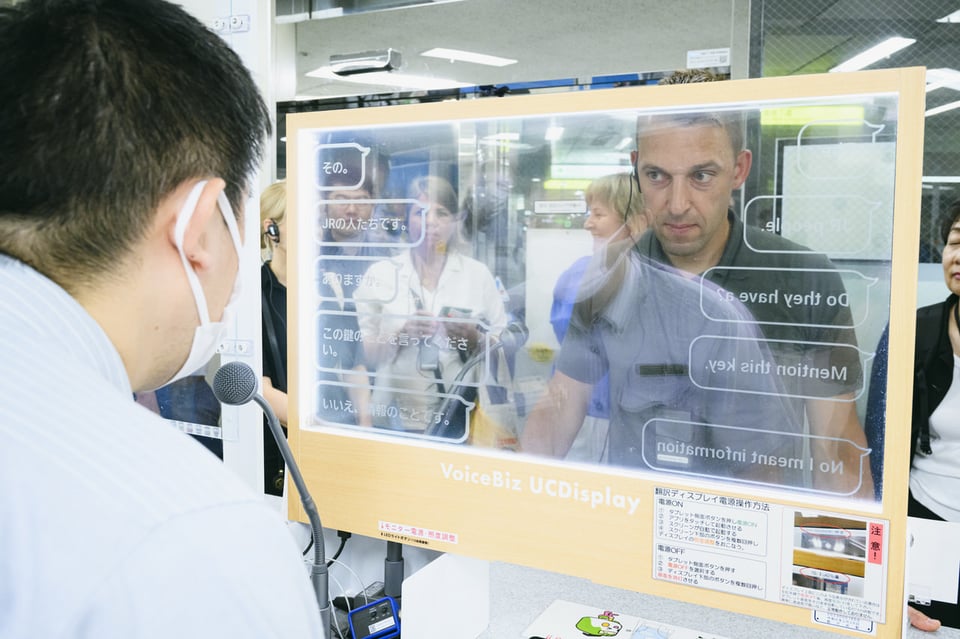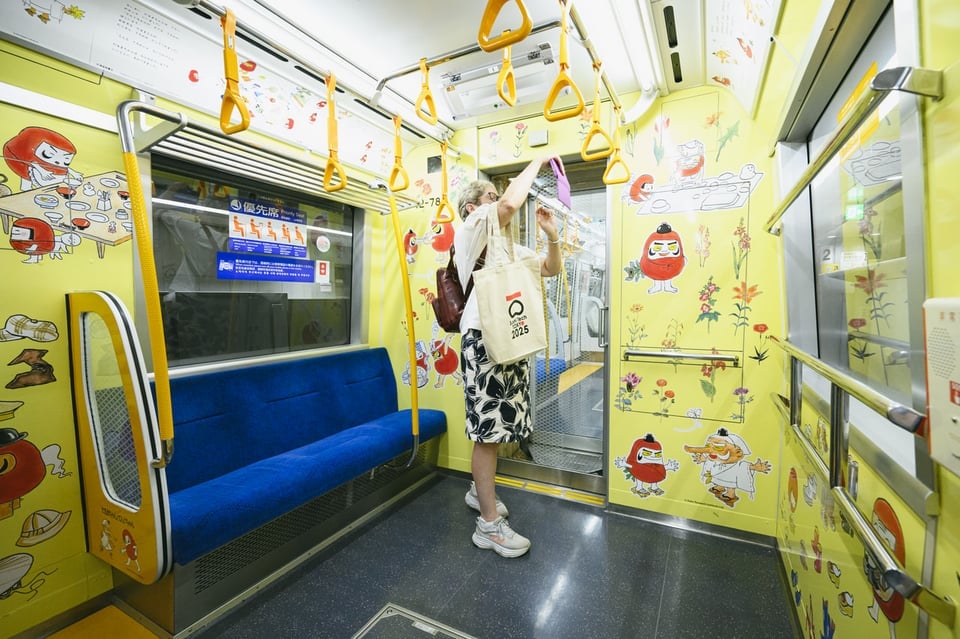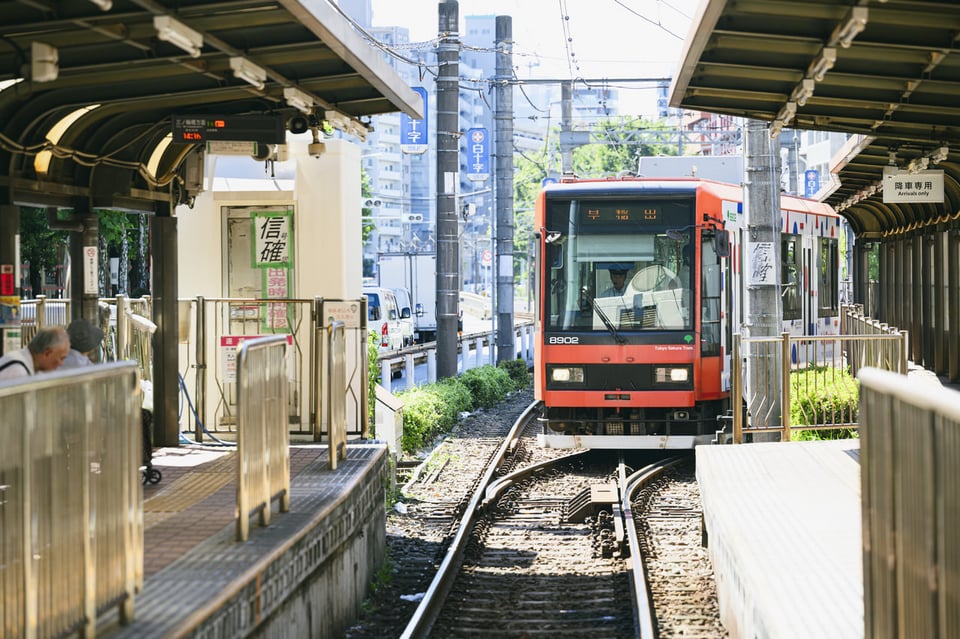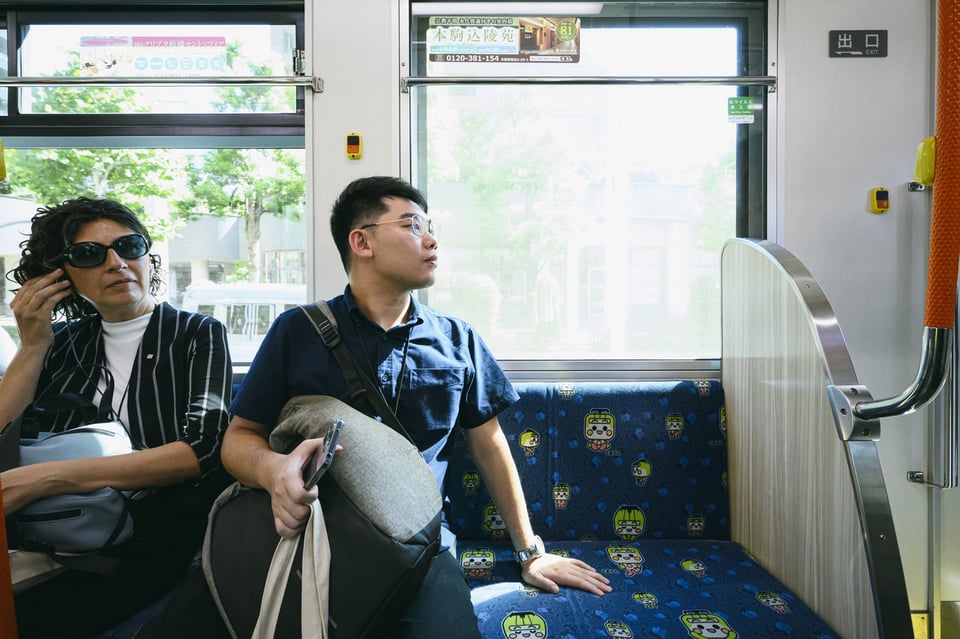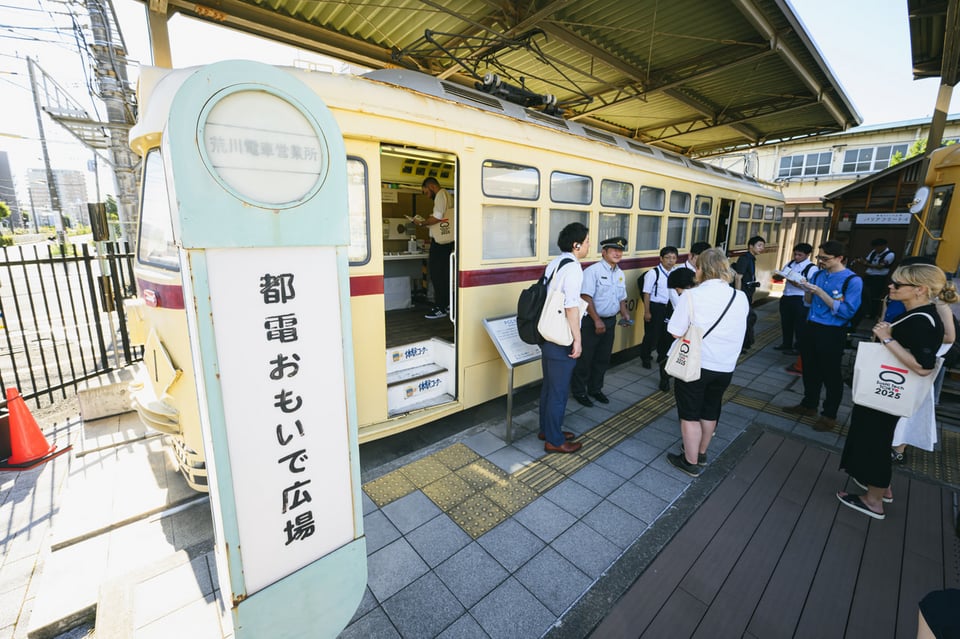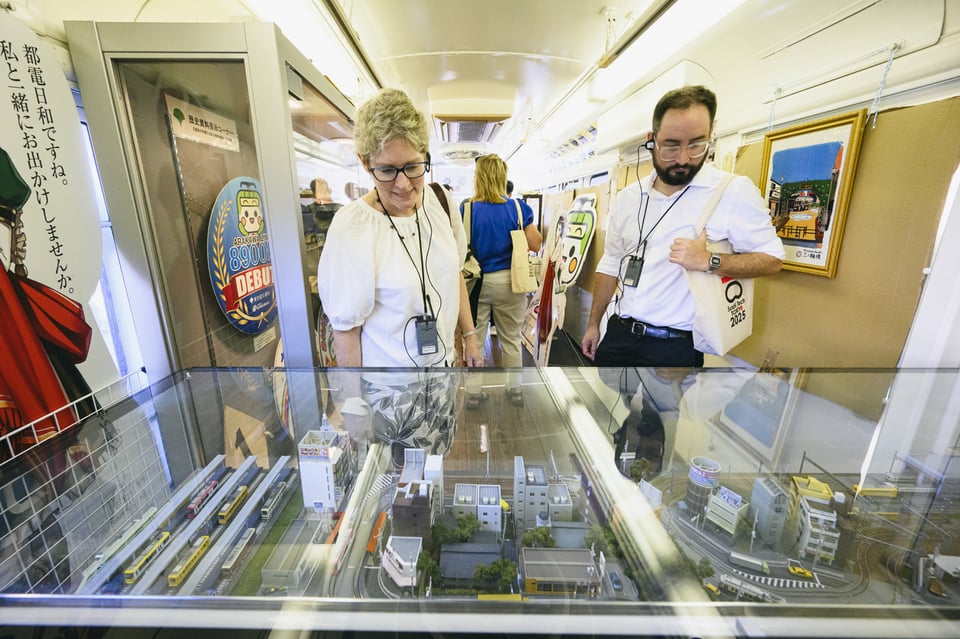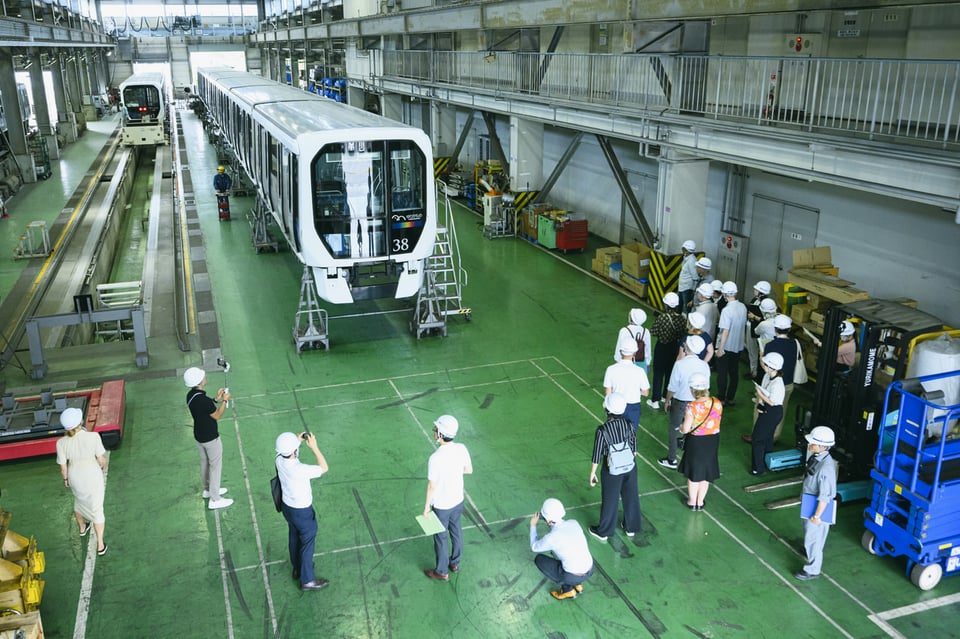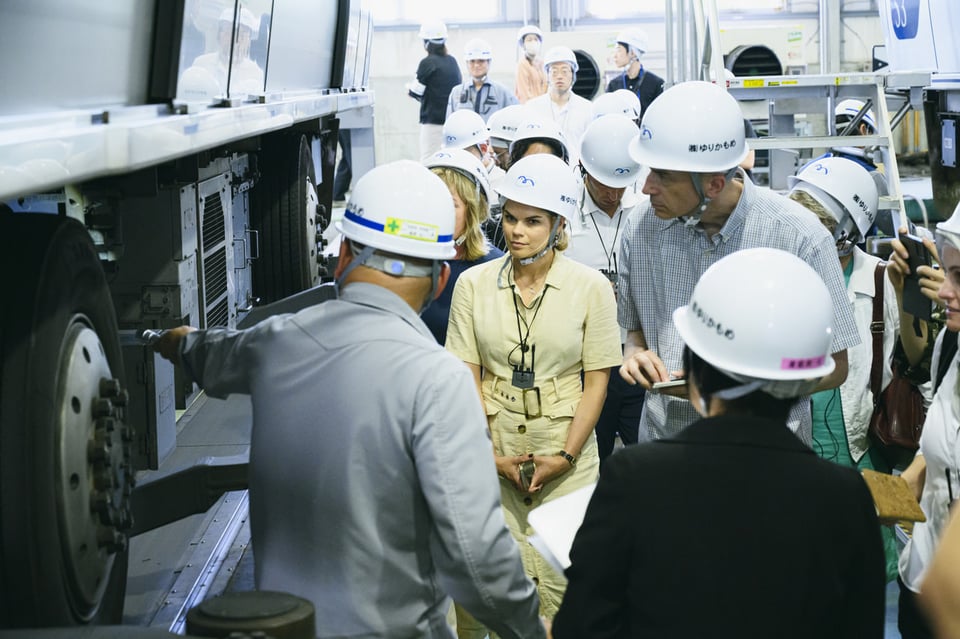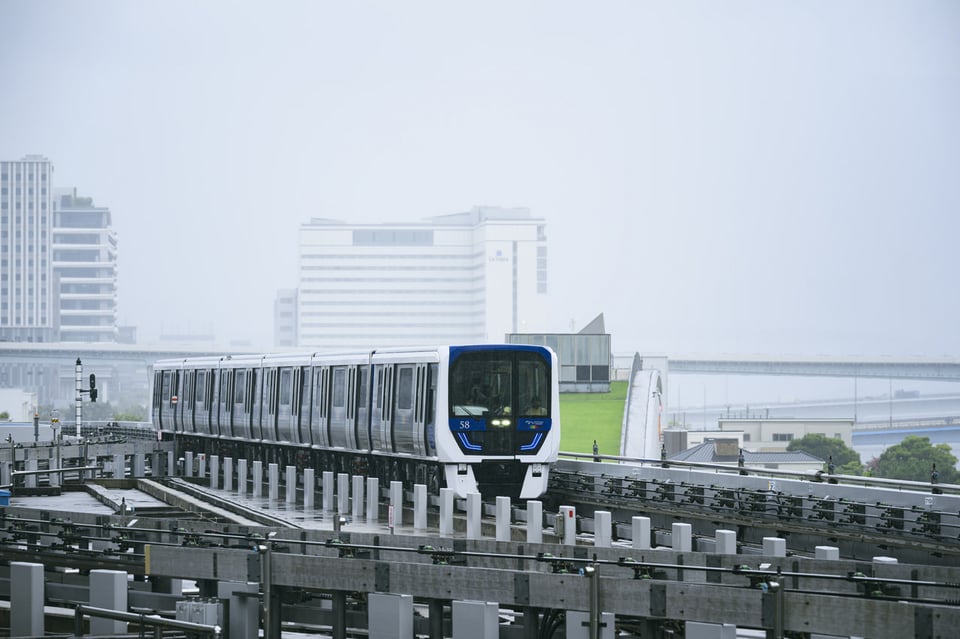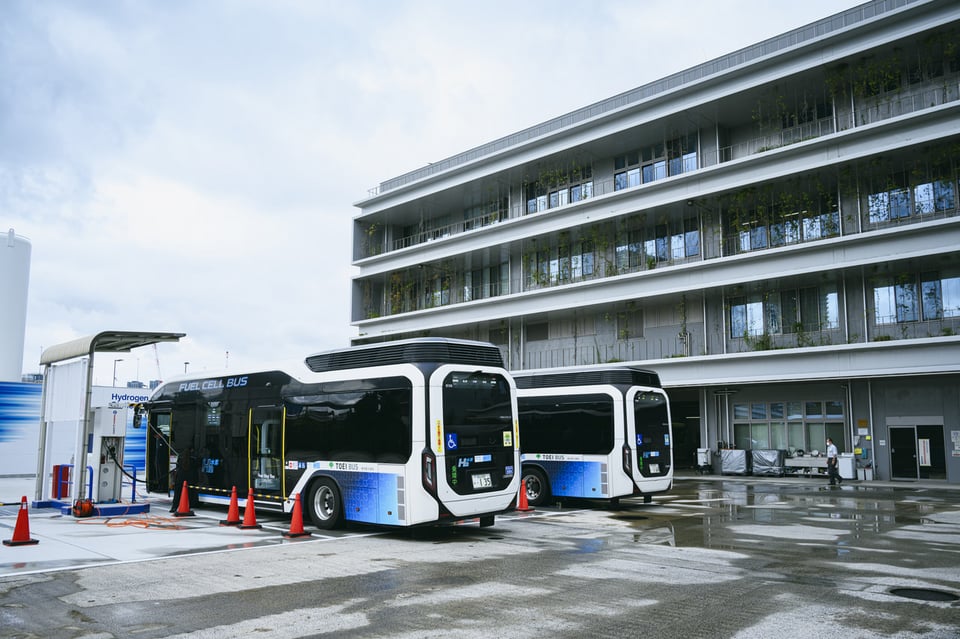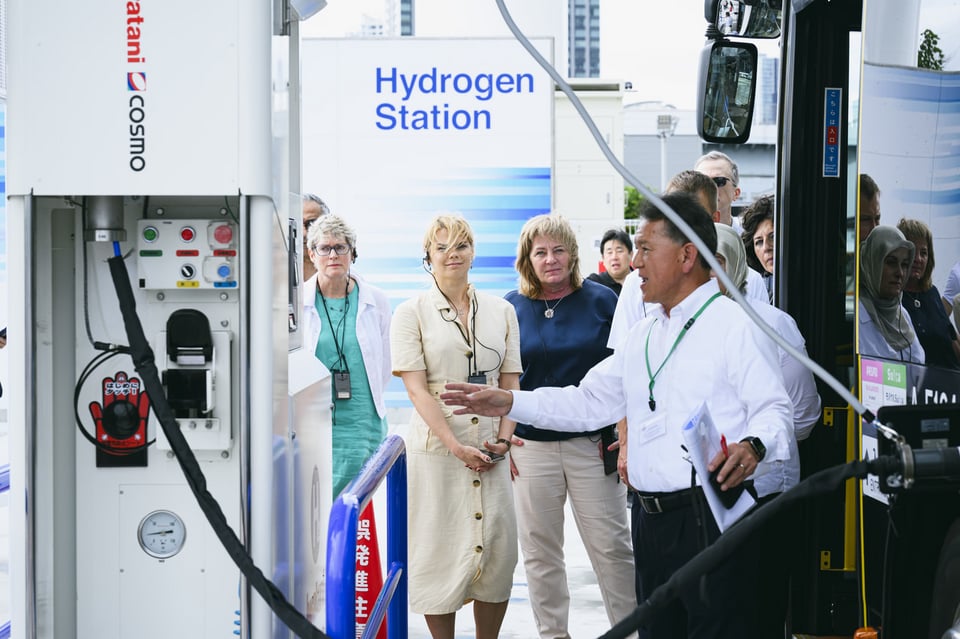
September 05, 2025
Working-Level Staff from 11 Cities Visit Tokyo: Insights into Public Transportation

As part of a joint project involving working-level staff from G-NETS member cities, a two-day site visit was held from July 31 to August 1, 2025, hosted by the Tokyo Metropolitan Government (TMG). Working-level staff from 11 cities around the world participated in the visit, which focused on initiatives in renewable energy and energy-saving measures in the transport sector, including subways, trams, hydrogen buses, and automated transit, with the aim of sharing knowledge to improve sustainability and accessibility in transit infrastructure.
On the first day, participants visited the Toei Oedo Line and the Sakura Tram, and on the second day, they toured the Yurikamome and hydrogen buses. Following the visits, a lively exchange of views took place.
Key Site Visits
[July 31, 2025]
・Tochomae Station (Oedo Line)
During an introductory session at TMG’s headquarters, staff from Bureau of Transportation introduced Tokyo’s approaches to energy efficiency in subways, trams, and buses. A Q&A session followed, providing opportunities to explore operational strategies, challenges, and future implementation plans. TMG’s Bureau of Transportation serves approximately 3.23 million passengers daily (FY2023), playing a vital role in supporting urban life in Tokyo.
Participants visited Tochomae Station to observe several key features, including the VoiceBiz® UCDisplay® multilingual transparent screen system, designed for face-to-face communication between passengers and staff. Supporting 12 languages and optimized for both foreign visitors and hearing-impaired users, the system is part of a broader push for inclusive design. The participants spoke to staff members in languages such as English and French via the transparent display and were impressed by the speed and accuracy of the translations.
・Tokyo Sakura Tram
The group boarded the Tokyo Sakura Tram (Toden Arakawa Line), which now operates entirely on 100% renewable energy, powered by Tokyo-produced hydroelectric power generated upstream of the Tamagawa River.
Since 2023, as part of the Smart Tokyo Strategy, a smartphone-based digital QR-code ticket called the Toden One-Day Pass has also been introduced. Developed in collaboration with the startup RYDE Inc., , this ticket not only enables cashless travel but also allows the identification of boarding and alighting stops via location data, representing one of Tokyo’s most advanced digital initiatives. Tokyo’s last remaining streetcar line, the Tokyo Sakura Tram has been in operation since 1913 and combines historical value with modern sustainability.
・Arakawa Vehicle Maintenance Depot and Toden Omoide Hiroba (Toden Memories Plaza)
At the Arakawa Vehicle Maintenance Depot, the group toured several key operational areas, including train storage tracks, vehicle traverser equipment, and the control zone within the operations office. The visit also included the Toden Omoide Hiroba (Toden Memories Plaza) exhibit, showcasing preserved historic vehicles. Depot staff provided insights into maintenance practices, operational efficiency, and the role of public history in civic transport education.
[August 1, 2025]
・Yurikamome Headquarters and Ariake Depot Maintenance
Facility The group traveled by hydrogen bus to the headquarters of Yurikamome, where they visited the Ariake Depot and the indoor maintenance building where Yurikamome trains are inspected. Celebrating its 30th anniversary in 2025, the system operates entirely on electricity derived from renewable energy and has led the world in automated transit technology.
・Yurikamome Line Ride
Participants experienced a round-trip ride from Ariake Station to Toyosu Station and back to Ariake Tennis no Mori Station, accompanied by Yurikamome staff who provided explanation about automation, track layout, and ridership trends.
・Ariake Bus Depot Hydrogen Station and Iwatani Cosmo Hydrogen Station
The group then traveled aboard a fuel cell (FC) hydrogen-powered bus, receiving an explanation of vehicle technology route to the Iwatani Cosmo Hydrogen Station.
Toei Transportation began operating FC buses in 2016—the first regular-service fuel cell buses in Japan—and now runs 80 units by the end of 2024. The Ariake Bus Depot houses Japan’s first in-depot hydrogen fueling station, launched in 2025. At the station, participants observed the hydrogen refueling process and took part in a Q&A session covering infrastructure, safety protocols, and future expansion.
The visit concluded with a debrief session at TMG headquarters, where participating cities shared reflections and explored how Tokyo’s initiatives could inform local strategies in their own transit systems. Participants expressed opinions such as, “The multilingual support and barrier-free measures in transportation systems were excellent,” which led to a lively discussion. These insights will help inform future collaboration across G-NETS cities working toward environmentally friendly urban mobility.
Participating Cities
Auckland, Brussels, Buenos Aires, Catalunya, Helsinki, Istanbul, New Taipei, Riga, Santo Domingo, Tallinn, Tartu (Alphabetical Order)
Related Links
